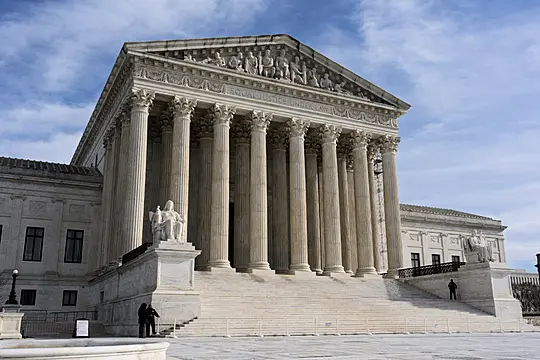Supreme Court Temporarily Halts Deportations Under 18th-Century Wartime Law
In a significant legal development, the U.S. Supreme Court has temporarily blocked the Biden administration from proceeding with a controversial deportation strategy based on an obscure 18th-century wartime law. The decision comes amid growing legal scrutiny and public debate over the use of the Alien Enemies Act of 1798—a centuries-old statute originally enacted during a time of armed conflict with France.
What the Supreme Court Ruled
In a brief order released this week, the justices agreed to suspend lower court decisions that had allowed federal immigration officials to begin deporting certain non-citizens under the Alien Enemies Act. This historic law gives the president the authority to detain or deport nationals from a hostile foreign nation during times of war.
However, critics argue the act is outdated and should not be applied to modern immigration enforcement, particularly in the absence of a formal declaration of war by Congress.
The Supreme Court’s ruling does not permanently strike down the policy but rather pauses its implementation while further legal challenges unfold. A full hearing is expected later this year, and the high court’s final decision could set a major precedent in both immigration law and executive power.
Background of the Alien Enemies Act
The Alien Enemies Act is one of the few surviving elements of the Alien and Sedition Acts of 1798, which were passed during heightened fears of foreign threats. While most of the other laws in that package were repealed or allowed to expire, this particular statute remains on the books.
Under its provisions, the president can authorize the arrest, relocation, or deportation of non-citizens from a country deemed an enemy during a time of war. The Biden administration had sought to apply this law to select groups of migrants from regions identified as national security risks, prompting immediate legal challenges from immigrant advocacy groups.
Legal Pushback and Public Response
Civil rights advocates and immigration attorneys have condemned the attempted enforcement of the law, calling it a dangerous overreach of presidential authority. They argue that invoking a law from the 1700s, without a declared war, is both unconstitutional and out of step with modern due process standards.
Several federal judges initially sided with the administration, allowing deportations to proceed in limited cases. But the Supreme Court’s latest intervention puts those efforts on hold, providing a window for further legal examination.
What’s Next
The case is now poised to become a landmark test of executive authority and immigration policy. Legal analysts anticipate that the final outcome could redefine how historical laws are interpreted in today’s legal framework, particularly when it comes to balancing national security concerns with individual rights.
For now, immigrants who could have been affected by this law can remain in the U.S. while the judicial process continues. Immigration lawyers are urging those at risk to seek legal guidance immediately and remain informed on further rulings.
As the nation awaits a definitive ruling, this case underscores the complexities of applying archaic statutes to contemporary legal and humanitarian issues.
Source : Swifteradio.com


